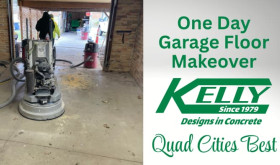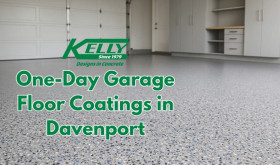
When it comes to sustainable building materials, concrete often doesn’t get the recognition it deserves. While many people associate sustainability with materials like wood or recycled products, concrete is increasingly being recognized as a top choice for eco-friendly construction. Its durability, energy efficiency, and versatility make it a cornerstone of sustainable building practices. Here’s why concrete is the ultimate material for sustainable building.
1. Durability and Longevity
One of the most significant advantages of concrete is its exceptional durability. Unlike other building materials that may need frequent replacements or repairs, concrete structures are built to last. This longevity reduces the need for additional resources and energy that would be required to replace or maintain less durable materials. Over its lifecycle, concrete’s resilience to weathering, wear, and natural disasters means it has a lower environmental impact compared to materials that may degrade or fail over time.
2. Energy Efficiency
Concrete is a highly effective insulator, which means it can help maintain stable indoor temperatures. This thermal mass property of concrete helps buildings retain heat in the winter and stay cool in the summer, reducing the reliance on heating and cooling systems. As a result, buildings constructed with concrete tend to be more energy-efficient, leading to lower energy consumption and reduced greenhouse gas emissions. Over time, this energy efficiency translates to significant savings in both operational costs and environmental impact.
3. Resource Efficiency and Local Sourcing
Concrete is made from abundant natural resources, including water, sand, and gravel, which are often locally sourced. This reduces the carbon footprint associated with transportation and supports local economies. Additionally, advancements in concrete technology have allowed for the incorporation of industrial byproducts like fly ash and slag, which not only reduce waste but also enhance the properties of concrete. The ability to use recycled materials in concrete production further underscores its role in sustainable construction.
4. Low Maintenance Requirements
Concrete structures require minimal maintenance over their lifespan, which reduces the need for additional resources and environmental impact. Unlike wood, which can rot, or steel, which can corrode, concrete remains stable and strong with little need for intervention. This low maintenance aspect means that less energy and fewer resources are required to keep concrete buildings in good condition, contributing to their overall sustainability.
5. Recyclability and Reusability
At the end of its life cycle, concrete can be recycled and reused in a variety of ways. Crushed concrete can serve as aggregate for new concrete or as a base material for roads and other infrastructure projects. This recyclability helps minimize waste and reduces the demand for new raw materials, making concrete a circular material that aligns with sustainable building principles.
6. Innovation in Concrete Technology
The concrete industry has been at the forefront of innovations aimed at enhancing sustainability. New formulations of concrete, such as high-performance and self-healing concretes, further extend the material’s durability and reduce its environmental impact. Additionally, the development of carbon capture technology in concrete production is helping to reduce the carbon footprint of concrete even further, making it an increasingly green option for construction.
Conclusion
Concrete’s durability, energy efficiency, low maintenance requirements, and ability to be recycled make it a top choice for sustainable building. As the world moves towards more eco-friendly construction practices, concrete is proving to be a versatile and reliable material that can meet the demands of modern sustainability. Whether for residential, commercial, or infrastructure projects, concrete offers a sustainable solution that benefits both the environment and the economy.
By choosing concrete, builders and homeowners can contribute to a more sustainable future without compromising on strength, safety, or aesthetics. Concrete is not just a building material; it’s a building material for the future.










